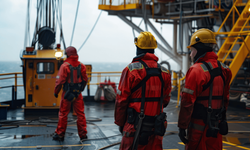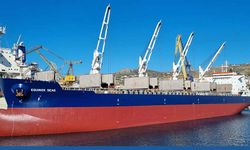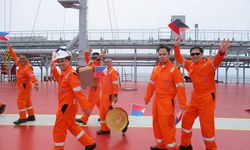On Thursday, during its 56th Session in Geneva, the UNHRC unanimously adopted the first-ever resolution on the rights of seafarers, initiated by the Philippines.
“This landmark resolution by the Human Rights Council propels forward the advocacy of the Philippines, along with other foreign governments, international organizations, and stakeholders, to safeguard and promote the well-being of approximately 1.9 million seafarers, with over a quarter of them being Filipinos,” stated DFA Secretary Enrique Manalo.
The resolution highlights the challenging conditions seafarers face at sea, which threaten their human rights, safety, and well-being, Manalo noted.
“Seafarers perform their duties, often under perilous conditions,” he said. “This resolution underscores that ensuring safe and decent living and working conditions at sea is a fundamental human rights necessity.”
Manalo also praised the resolution’s commitment to fostering a maritime industry where women's safety and rights are prioritized.
“As a nation with a significant number of seafarers globally, the Philippines will continue its active involvement in the Council, the United Nations, and all relevant international bodies to contribute to global efforts in setting the highest standards for promoting and protecting the dignity and rights of migrants worldwide,” he affirmed.
The resolution, titled “Promoting and Protecting the Enjoyment of Human Rights by Seafarers”, urges states, shipowners, and seafarers' representatives to bolster the enforcement of the Maritime Labor Convention to guarantee safe and decent living and working conditions for all seafarers.
It calls on the shipping industry to respect seafarers' rights, including their decisions on sailing in high-risk areas, and encourages states to intensify efforts to eradicate forced or compulsory labor in the industry.
The draft resolution underwent extensive consultations, including three informal consultations and briefings with interested delegations, and a panel discussion with major stakeholders in the shipping industry such as the International Labour Organization (ILO), International Maritime Organization (IMO), International Transport Workers Federation, International Chamber of Shipping, and Stella Maris. The initiative received support from both the ILO and IMO.






